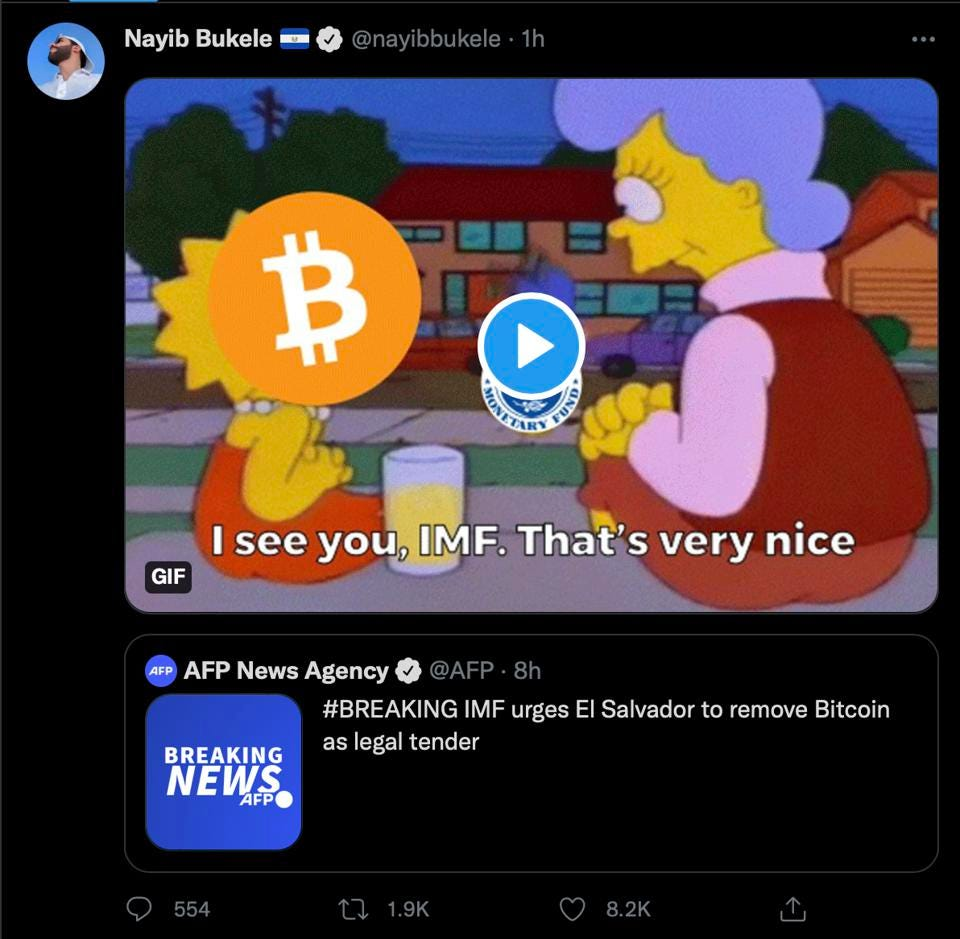In a press release today, the International Monetary Fund (IMF) Executive Board (Board) concluded a 2021 ‘Article IV Consultation’ with El Salvador, where recommendations on the country’s economic policies are made. The Board was generally impressed with how the country managed the impact of Covid-19, although concern was expressed regarding the large public debt that grew during the pandemic. The Board was concerned about El Salvador’s banks recovering from exceptional liquidity measures and debt relief to individuals and businesses. The Board commended the country for choosing to move to a more forward-looking and risk-based financial supervision in the monitoring of its banks.
The Board also weighed in on the importance of financial inclusion and how the decision to offer a Chivo digital wallet that allows for transactions in bitcoin and U.S. dollars could help El Salvador make progress on this front. However, concern was expressed regarding the need for greater oversight and regulation for the new Chivo and Bitcoin ecosystem. Risks associated with Bitcoin that were highlighted included financial stability, financial integrity, and consumer protection.
While El Salvador was praised for its work to help improve financial inclusion, the Board did urge that the scope of the law remove Bitcoin’s legal tender status in the country. However, El Salvador’s President Nayib Bukele has been very resolute in his belief of the benefits of Bitcoin for his country.
Some Directors on the IMF Board were also concerned with the use of Bitcoin-backed bonds as well. Samson Mow, the Chief Strategy Officer of the digital asset firm Blockstream, announced earlier this year how his company was overseeing the implementation of the billion-dollar ‘Volcano bonds’. Half of the money raised would be used to purchase Bitcoin mining equipment while the other half would be used to buy Bitcoin.
The Chivo Wallet webpage that El Salvador uses for its distribution of Bitcoin explains the technology as , “...a virtual currency created in 2009 that serves to purchase products and services like any other currency. But it is decentralized, that is, there is no authority that is responsible for its issuance and control. Everything is recorded in a decentralized database distributed worldwide.”

Key benefits of Bitcoin listed by El Salvador’s digital wallet include its use as a global currency that will open the country to international markets, ability to save in remittances by removal of intermediaries so Salvadorans could save millions of dollars in transferring money to their families, and as a foreign investment since investors could spend their Bitcoin in El Salvador, which can improve the country’s economy. The full press release from the IMF is available here.
Forbes